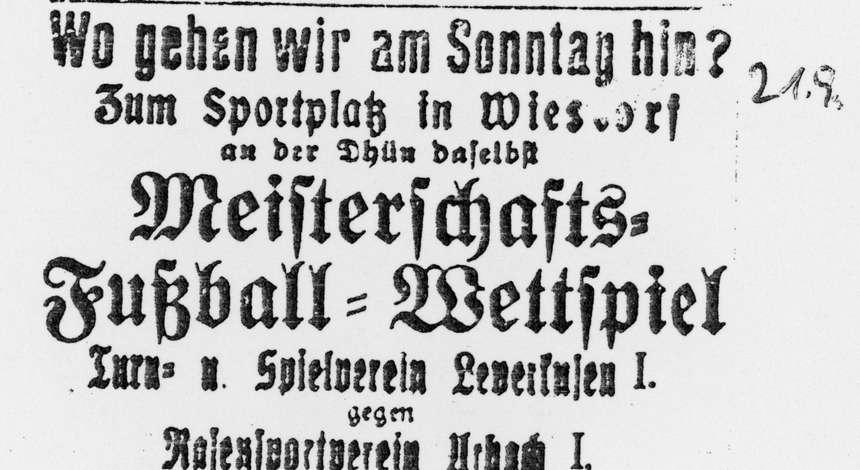
"Last Sunday, the above teams met for the scheduled championship match at the Sportplatz an der Dhünn. The two teams present themselves to the referee punctually at 4 o'clock. Leverkusen, with a new line-up, played against the wind at the start. The Black and Reds besieged the opposition goal. The goalkeeper and defenders had a hard job on their hands but and again and again skilfully managed to bring the ball away from the danger area in front of goal. Urbach gradually picked up. But their powerful attacks broke down against the solid Leverkusen defence with Bartsch today producing an outstanding performance. It was goalless when the two sides changed ends.
After the first half, the Black and Reds took full control but were unable to make the breakthrough initially. Then – with 26 minutes to play Bönnen received a good pass but he was fouled. The ensuing penalty was easily converted. Urbach tried with all their might to draw level. Their outside left again and again took the attack forwards. With ten minutes left, Koll handled the ball in a goalmouth melee. Penalty. The spectators were highly excited and the heavy rain did not drive them from the pitch. But the penalty was fired over. 'A new penalty!' Decided the referee because there was encroachment in the penalty area. The crowd grew even more excited. The shot comes in but Nagelschmidt saves to thundering applause. Shortly after that, the referee ends the game. It was a battle with the better team winning."
This match report appeared in the newspaper on 27 September 1919, almost a week after the match.
Related News
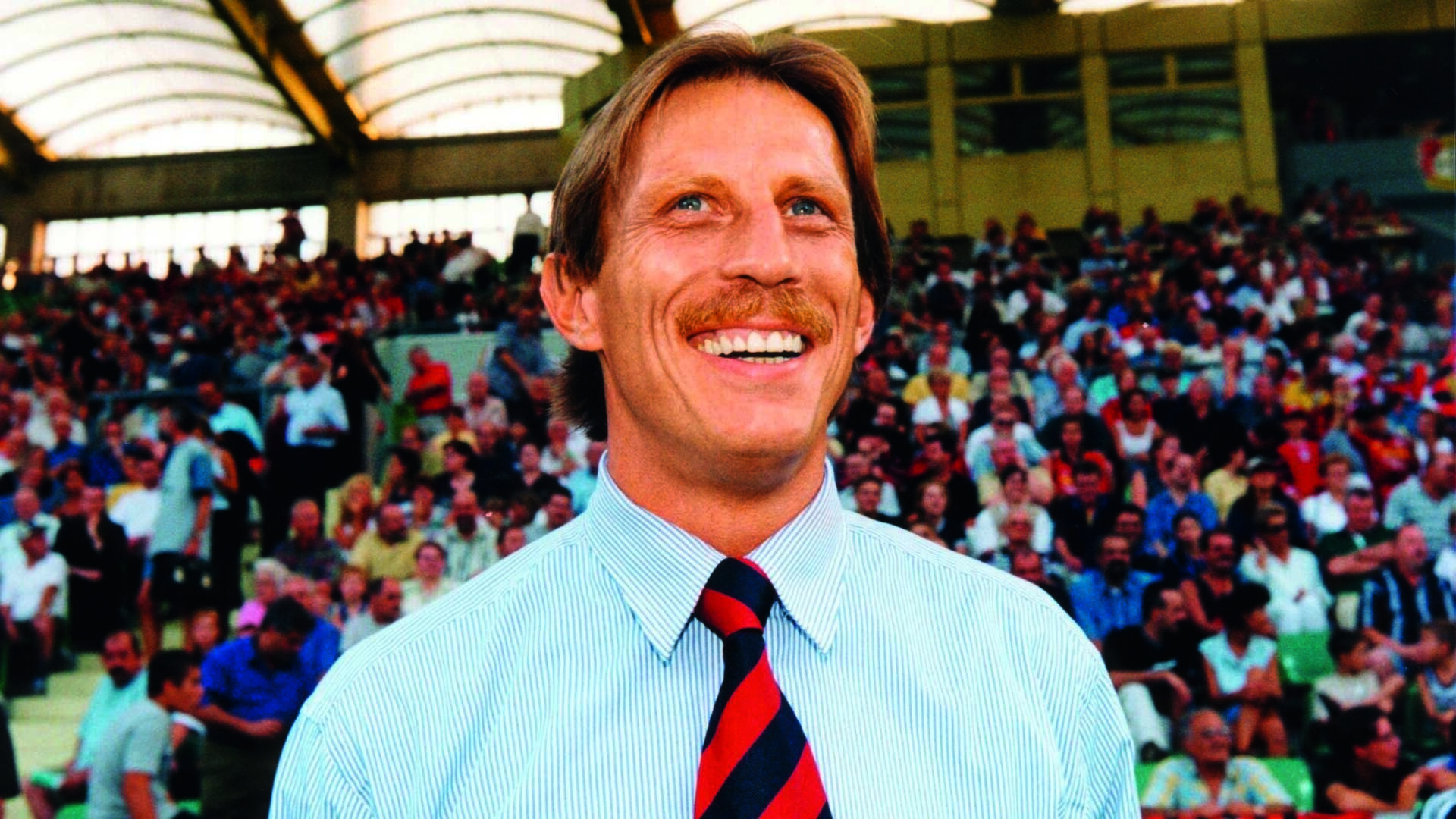
Legend: Christoph Daum - The man who taught us to want
Christoph Daum was born on 24 October 1953 in Zwickau. As a child, he moved to West Germany with his mother and grew up in Duisburg. He developed a great enthusiasm for football at an early age, even though it soon became clear that his future lay less on the pitch than on the sidelines. Even at a young age, his passion for analysing, explaining and improving things became apparent.
Show more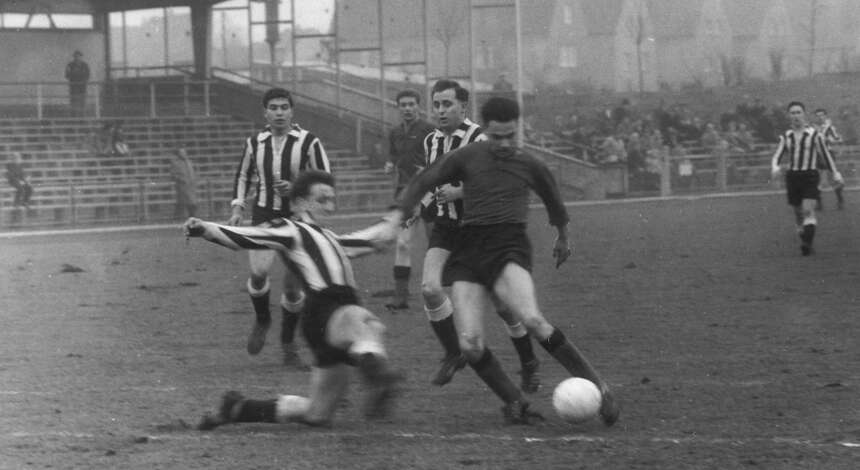
From the archives: 65 years ago - Another victory at last
When the Bayer 04 players celebrated Christmas in 1960, they spent the winter in second place in the Oberliga West 2 on 20 points - but already five points behind leaders Schwarz-Weiß Essen. However, coach Erich Garske's team are struggling to get back on track in the new year. A goalless draw against Bonner FV at home at the Ulrich Haberland Stadium was followed by a 2-1 away defeat in Erkenschwick. The following home game also yielded just one point. As a result, the team's promotion ambitions dwindled to a minimum, as the gap to the coveted spot has now grown to a challenging ten points.
Show more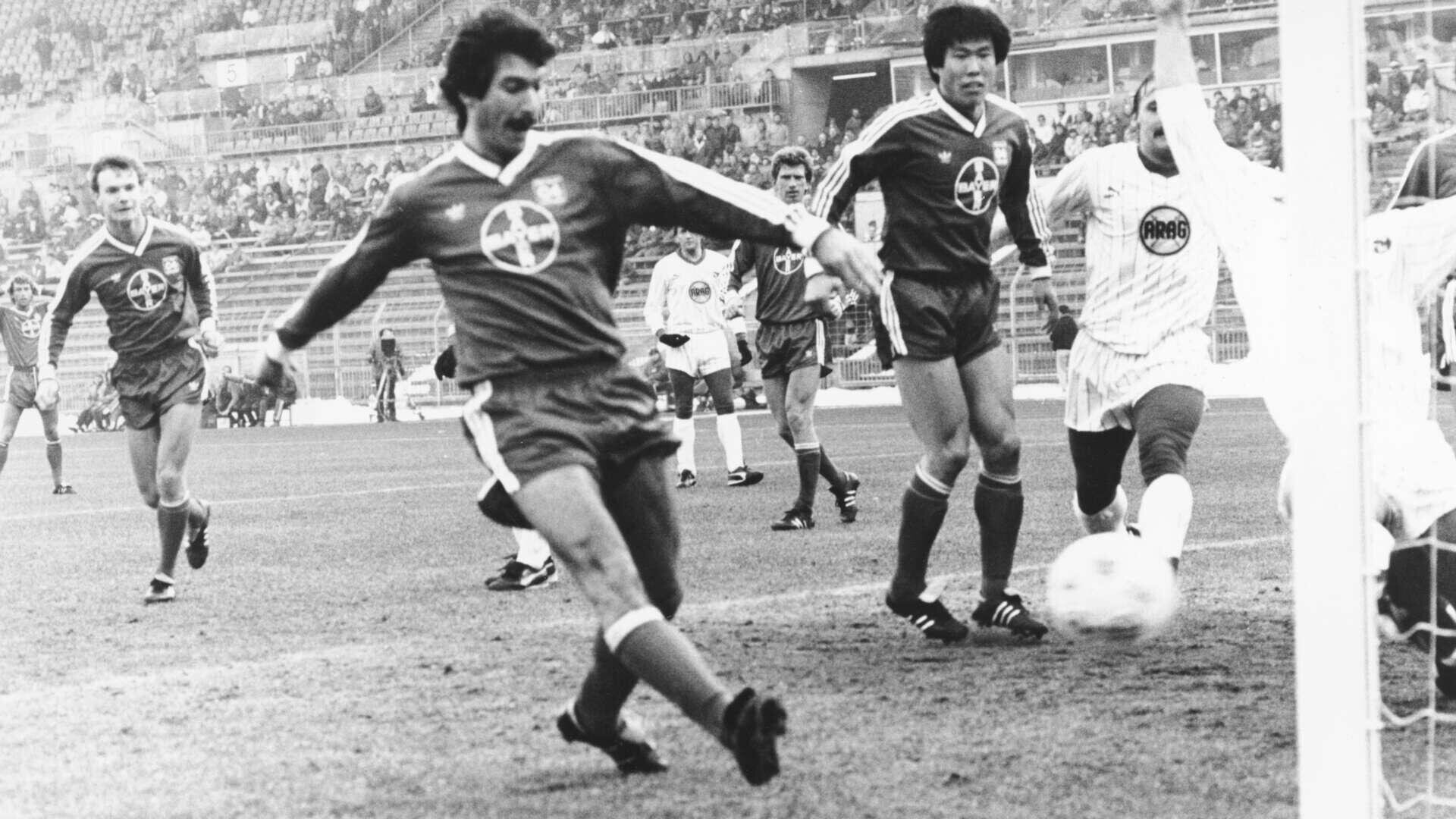
Goals of the month: From Waas to Tapsoba
In this video you can see impressive and important goals in Bayer 04 history from the month of February. It's not always about the beauty of the goals, but also a reminder of special games and players.
Show more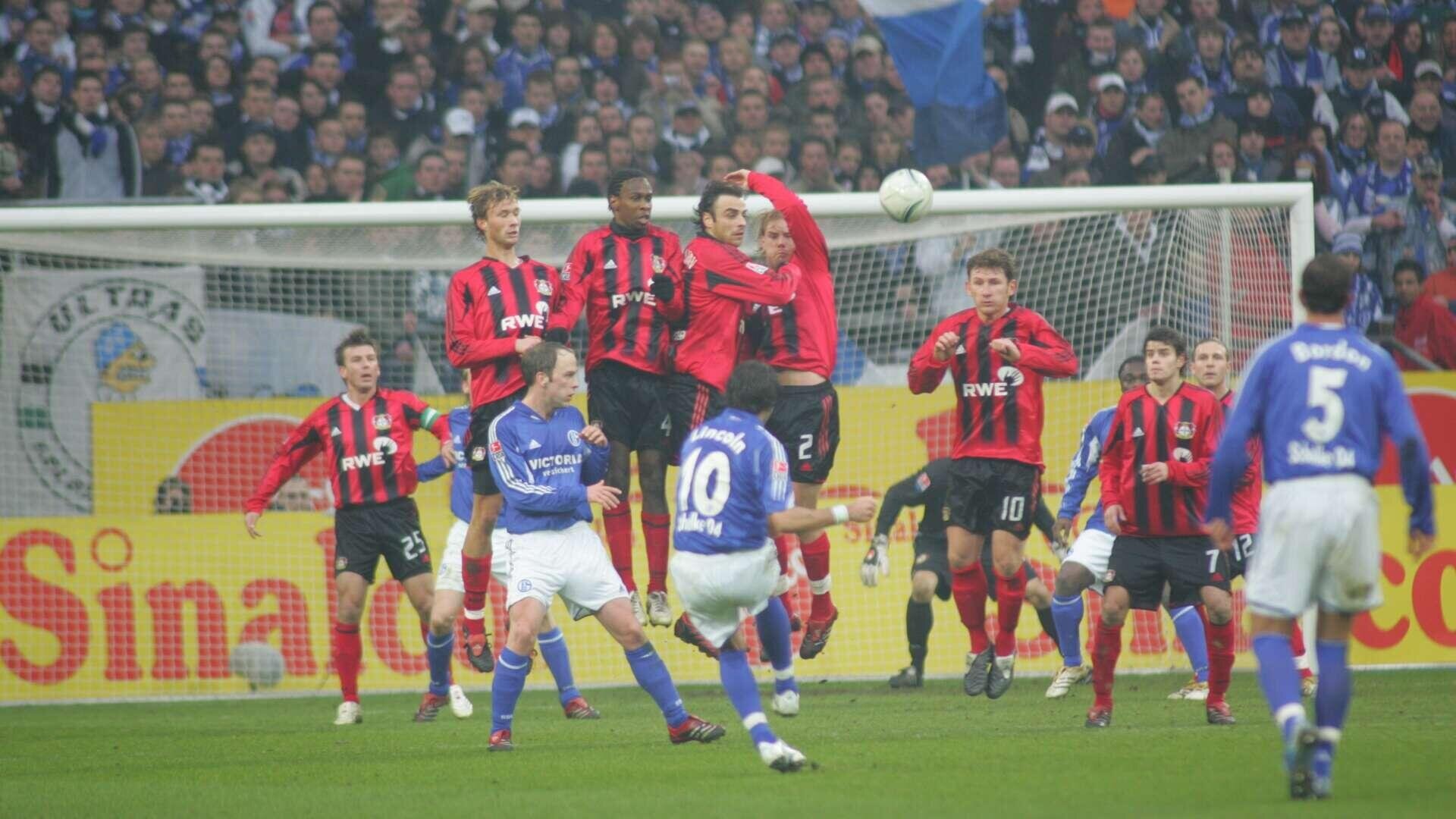
Match of the month: 20 years ago - A game of goals galore
It is 11 February 2006 and Schalke 04 and the Werkself kick off at 3.30 p.m. in a match that ends up being historic - at least from a Bayer 04 perspective.
Show more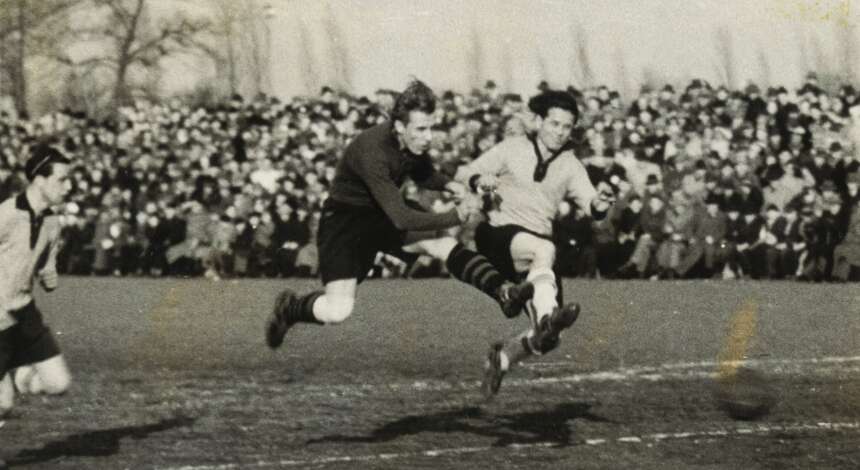
History: 75 years ago - The 1950/51 season (February)
As league leaders, the Werkself welcomed the relegation-threatened team from Rhenania Würselen. On 4 February 1951, 5,000 spectators line the touchlines despite the Sunday carnival parades. And they see a home team that is superior on the pitch. Without Theo Kirchberg, who was ill, and Emil Becks, who was suspended, the hosts attacked the opposing goal from the start. Battling against a strong wind in the first half, Bayer 04 created chance after chance, but were repeatedly thwarted by the Würselen goalkeeper. With the score at 0-0 at half-time, Karl Heinz Spikofski tried his luck on 55 minutes and hammered the ball into the opposition net from 20 metres out. Rhenania can no longer counterattack. The siege of the Würselen penalty area continued right to the end, but the game ended in a narrow 1-0 win.
Show more